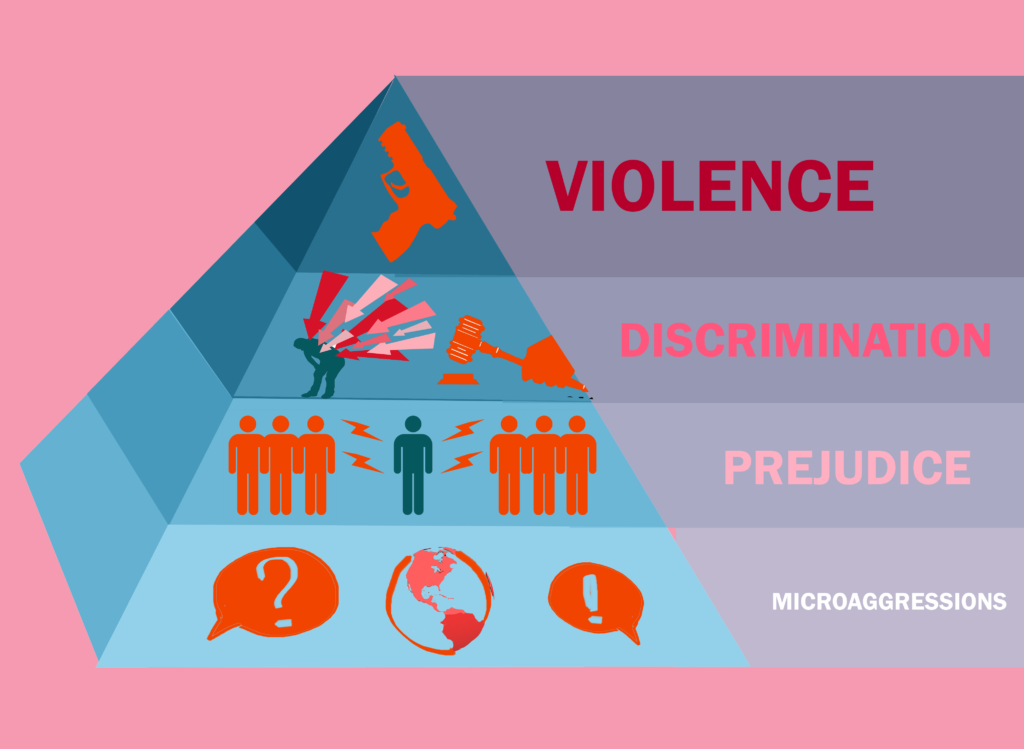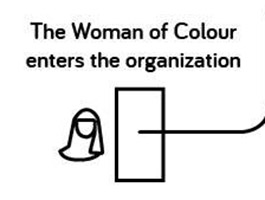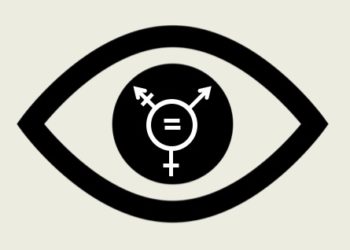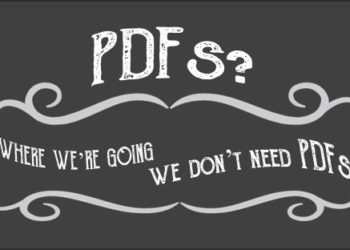Editor’s Note: Following up on their first post on the topic, the authors of On Being Excluded: Testimonies by People of Color in Scholarly Publishing have compiled a second set of testimonies about racism in our industry. These powerful stories demonstrate the change needed — at the individual and institutional levels — to make scholarly publishing the welcoming and inclusive community it could and should be. Once again, these contributions are being published anonymously at the authors’ request.
We would like to thank everyone who bravely shared their stories for both of our blog posts, as well as in the comments. We know from personal experience that the process of remembering and re-telling these incidents takes a great deal of emotional work and energy.
Due to space limitations we originally published only half of the stories that were submitted to us, though we included at least one from each contributor. Many contributors shared numerous experiences with us, signaling that these micro-aggressions do not happen in isolation: over time, these experiences perpetuate a pattern of exclusion and emotional violence. They add up to make people of color feel unwelcome and unsafe in their work environments, ultimately leading to significant health and professional consequences.
The issues that people of color face in our industry are not only individual, but systemic. Extensive individual and institutional work is needed if we are ever to see change.

Testimonies
I interviewed for an entry-level position in publishing with a white woman who came into the café where we were meeting, looked around several times before she realized I was waiting for her, and said to me as she sat down, “Oh, sorry — I thought from your name on your resumé that you would look different. More ethnic.”
I had always been the first or the only black professional in all my publishing jobs, so I was excited to learn that there would be two of us at my new university press. Unfortunately this presented a new problem: both of us were referred to by the other’s name on more than one occasion by more than one colleague.
During a diversity training at the press, we were asked when we first realized what our racial identity was. A middle-aged white woman at the Press turned to me and laughed, “well, you probably came out of the womb knowing!” Her exclamation made clear to me how white people assume they are the default, and that they are the only people “without” a racialized identity. Of course, I did not come out of the womb knowing that I was brown, and instead learned that I was brown sometime in elementary school through comments (like this one) and treatment that made me feel othered.
I changed my hairstyle to the texture that naturally grows out of my scalp. Afterward, I received new reminders about wearing “dressy” or “very professional” attire for certain events. Since nothing changed about how I dressed for our events, I feel this was a way of expressing a preference without having a conversation or risking sanctions.
As the only black staff member at the Press, I started to notice that I was asked to attend meetings every time there was an issue with a black author or black bookseller. At the same time, I was often excluded from higher-level meetings that were more appropriate to my role.
My boss once called me a “workhorse” and then, when I showed offense to being called an animal (because of the long and gruesome history of white people equating black people to animals), he told me that I was being “too sensitive.”
In response to increasing discussions about diversity happening at the Press I was working at, I once engaged the Editorial Director as to why he did not show any interest in being involved in these discussions. He told me he was “beyond diversity” because in his words, “diversity doesn’t solve anything.” Had he ever attended a diversity event at the Press, or bothered to listen to the women of color who led these initiatives at the press, he would have known that a critique of “diversity” and “multiculturalism” was built into the discussions that we were trying to start. But he never showed interest in any of the events, nor has he advocated for any changes at his Press that would give more power to people of color. His behavior is emblematic of the white liberal who can spot racism and white supremacy only when it exists outside of themselves, or, more importantly, only when it does not present a challenge to the power they wield in their day-to-day lives.
During my very first day as a temp at a UK-based publisher, I came to the office with a temporary ID card given to me by my manager at the interview. As I walked through the door I was shouted at by the security guard who said something to the effect of, “Look, I’ve told you multiples times before. You shouldn’t use this pass.” I was trying to tell him this was literally my first day, when he took the pass from me and marched me to reception. There, the receptionist also dressed me down for not using the right card and how I should know this by now. Neither seemed to believe this was my very first day. I waited by reception while colleagues walked past. Finally, my red-faced manager came to collect me and re-issued me the very same temp ID card. As the weeks went by I was followed around the building by different security personnel and asked to produce my card while white colleagues I was with were not. This introduction to publishing gave me the sharp realization that this company was not at all used to having a ‘Person of Color’ in their midst and, as a default, regarded me with general suspicion and contempt.
I showed a picture of my daughter as a baby to a colleague, who then said, “what a cute little monkey.” Because I am black and calling black people “monkeys” is entirely inappropriate, everyone stopped talking. She then said, exasperated, “Did I say something wrong?”
As one of the few younger women of color at my company I’ve often become associated with diversity efforts there, which has led to push back from several employees — most of them older white editors who feel that they shouldn’t be told their lists aren’t diverse enough, but some of them have been white coworkers my age. “Race is your thing, feminism is my thing,” I’ve been told by several of these white women — including some I had trusted as allies. Evidently, if you advocate for racial diversity in a field dominated by white women, you will never be anything but the angry brown minority in the room.
At conferences, sometimes other editors or authors will introduce themselves to me and then, when I say my very ordinary name, they’ll look a bit surprised and say something to the effect of, “Oh, that’s not hard to pronounce at all.” Even though this type of interaction isn’t particularly harmful or mean spirited, knowing that some people assume I’ll have a “foreign-sounding” name is startling and discouraging.
A prominent feminist author of color requested in her author questionnaire that the art on the cover of the book be by a feminist of color. This request was overlooked by the entirely white design team and the white editor whose project it was. When I brought it up to the editor, he circumvented my concerns and insisted it didn’t make a difference. I tried to push back but was ignored. The cover art for that book still features the art of a white woman, which I find especially ironic because it is a book by a famous feminist of color who regularly writes about how women of color’s voices are silenced, dismissed, and marginalized.
I’ve worked at the same university press for nearly a decade. Certain patterns are visible to me now – patterns that give shape to institutional racism. More than half of the people hired at our press have had a previous connection to someone at the press. Our press is mostly white, and the people hired with connections are also white. One hiring manager recently mentioned to me that she wanted to pay especially close attention to diversity in her upcoming hire. She ended up hiring the white roommate of a white staff member. I happen to know that this person received guidance on their application from a different staff member. When you are within the network, guidance and support are easier to come by. Hiring managers are more comfortable sticking to their networks. They think, “I know this person and they would be ‘a good fit.’ Or “This person was recommended by a friend, so it is a safer bet.” That’s all well and good, but what about all of the people who are not in the network and who have historically not been in the network of your institution? The vast majority of university presses are affiliated with PWIs (predominately white institutions) and most presses in the US were founded under legal segregation. Isn’t it time white folks delved more deeply into the systems of exclusion that emerge from a reliance on “networks?” Change will require risk-taking and intentionality. Publishing isn’t rocket science. Give us a chance and we’ll show you that we are just as capable as the people in your networks.
During my time at the press I realized that the cognitive dissonance of white people and their relationship to race knows no bounds. They could read all they wanted. They could regurgitate Black scholarship. And they could bend over backwards for Black scholars who they deemed worthy, and who essentially paved their road to salary and clout. But being that close to Black thought in no way caused them to reflect on or remedy their day-to-day abuses of power. It didn’t change their relationship to white privilege. It didn’t grow a respect for the people of color they encountered in their daily lives.
My experience led me to believe that the legacy of releasing Black and Brown work to the world must be carried out by Black and Brown folks themselves (as it undoubtedly has been and is in different pockets of the field), if there is any chance at an ethical culture in publishing.
Unless organizations and individuals engage in enduring anti-racist work, staff members who are people of color will continue to face the same issues. Sadly, this is a conversation that has been happening in the publishing world for decades, as witnessed by pioneers like Margaret Busby, Britain’s youngest and first black woman publisher. Busby faced decades of discrimination yet continues to advocate tirelessly for diversity in publishing even after more than 30 years of seeing minimal progress and change. We must follow her lead and the lead of other people of color who are bravely sharing their stories so that we can learn the range of the problems that exist and then find a way to do better.
People of color have been dealing with racist cultures in publishing for long enough. If we are to ever see significant change, efforts will need to move beyond the short-lived conversations and limited initiatives that we have seen here and there. The stories in these blog posts clearly indicate how much work is left to do to create an inclusive, anti-racist culture within our organizations.
As before, if you would like to contact us about your experiences, please do so via Alice Meadows.
Discussion
12 Thoughts on "On Being Excluded: Testimonies by People of Color in Scholarly Publishing, Part II"
Thanks to the writers here for another powerful post. If you’re attending the SSP annual meeting, SSP’s Diversity and Inclusion task force has a session at 1:30 pm on Wednesday to discuss some of the inclusion efforts emerging across the industry, highlighting the work of the American Library Association among others. There will be plenty of time for questions and discussion–we would love to have interested readers join us. The sharing of these stories is an important reminder of just how much work needs to be done.
The point about hiring within a network is well made. Proactively looking to expand our networks beyond the usual suspects – not just in terms of hiring, but also other opportunities, such as speaking at conferences, contributing to blogs, participating in working groups, etc – is something we can all commit to as a small first step toward addressing these issues.
I really appreciate the willingness for people to share these stories; I know it must be difficult to share them. As hard as they are to hear, they are also very important to hear.
While I was discouraged to see that at least one contributor felt that there wasn’t a way for white people “to change their relationship with white privilege.” Just from the shared stories in the past two SK posts from people of color, I understand why they feel that way. Obviously we have a long way to go, but many people (of different backgrounds and races) are invested and engaged in trying to get there.
Thank you once again to all of you for mustering enough belief in our community to put yourself through the experience of sharing your stories, in the hope that change is still going to come.
Knowing how some people instinctively respond to testimony like this, I want to put to them a point that I’m struggling to articulate. Basically that all these things can be true at the same time:
1, that some of these comments and behaviour may be nothing to do with ethnicity
2, that some of these comments and behaviour may be driven by ethnicity, but thoughtless rather than consciously discriminatory
3, that some of these comments and behaviour may be driven by ethnicity, and consciously discriminatory
I’m trying to articulate this in order to suggest to anyone thinking 1 or 2: please, don’t deny the experiences of those brave enough to share them. However much – HOWEVER MUCH – you might fully believe 1 or 2, it doesn’t in the slightest change the fact that such comments and behaviour “make people of color feel unwelcome and unsafe in their work environments” (in Alice’s words). Questioning whether people are “right” to feel that way is really just adding insult to injury.
Thanks again to all those who contributed. You are inspiring. In my case, you are inspiring me to learn about positive action (https://en.wikipedia.org/wiki/Positive_action) and what that needs to mean for community engagement, pipeline, recruitment, retention, promotion, training, for my organization and for our industry.
If we POCs do something which is “ethnic” its called unprofessional.
If we talk about discrimination we are called “angry” or “sensitive”.
If a POC or a South Asian author sends a proposal, it is always seen with doubt and we are to “double-check” the background.
If production in India does a mistake which could happen anywhere, then “those Indians” messed up again.
Does that behavior also fall into our expert analysis of human psychology?
Looks like the cacophony of fake innocence is the privilege of the white symphony in publishing, including the applause.
Thank you Desibhai for your comments. Your 2nd point “If we talk about discrimination we are called “angry” or “sensitive”.” is a great example of what I was trying to summarize with the example responses 1 and 2 above – I agree that some people people, when the subject of discrimination is raised, will see some examples as “over-sensitivity”. Your other examples resonate and are thought-provoking too. “Fake innocence” is a powerful phrase, perhaps similar to the “passively well-intentioned” phrase that Latina Publisher uses? Good to encourage people to look harder at their own responses.
I really appreciate your comment, Charlie, because it highlights the fact that whether or not bias and mico-aggressions are intentional, the result is the same: They create an environment where POCs feel unwelcome. I’m quite sure that most of my white colleagues at my current organization have very good intentions. And I think they sometimes are confused about why that is not enough.
In my opinion, white folks who want to be better allies should prioritize reading about histories of oppression and/or watching films that do the same educational work. This is part of the important listening work that is required to be an anti-racist ally. Here is a list of each to get you started: Books: https://www.charisbooksandmore.com/understanding-and-dismantling-racism-booklist-white-readers, Films: http://www.alliesforchange.org/documents/Racial-Justice-DVDs-Videos.pdf. The more you engage with these histories and the current struggles that POCs face, the more it will be clear what it can mean to be actively anti-racist vs. passively well-intentioned. There are anti-racism organizations in most cities now that provide training. There are community organizations doing great anti-racist work that can inspire you to see what else needs to be done in your organization. All of this work will then help you to understand how words and actions, even if said and done with good intentions, can inadvertently perpetuate white supremacy.
The type of engagement I’m seeing from many of you who are responding to these two blog posts brings me hope.
I wanted to second the thanks for the additional reading links and films.
I think “to be actively anti-racist vs. passively well-intentioned” is a really helpful characterization of an important difference here – and thank you for sharing some links to give people an immediate go-to place to learn more about the former.
Thanks for publishing these stories–keep them coming! I especially appreciated the one about connections and hiring within networks and how that contributes to insularity and functions as a gate-keeping force that keeps publishers and the industry as a whole white and homogeneous. I’d love to read more research and extended reflection on this topic.
Straightforward solution: demand publishers to release yearly reports on diversity in hiring and promotion (at different levels). The trick which publishers have quickly learned is to become more diverse in low paid levels of the companies and keep the white musk reeking in the higher 2-3 levels.
I am a South Asian working at a european publisher. At least 9 yrs have passes with me delivering 110-120% of target each single year, and I never get to climb the ladder even an inch. Nor am I involved anymore in decision making, which in the initial years they used to, which I now realise was only to keep me on board and to show “diversity”.
Problem with publishing: european job market is not as fluid as in the US. So despite the obvious discrimination, people like me tend to stay.
Thank you all so much for this post, the one before it, the additional reading links there, and any further posts that you might make in the future, if you choose. I’m so sorry that our culture is such that you need to remain anonymous to safely discuss these problems, and grateful for your bravery in bringing these stories here. I’m listening, and trying to learn.



